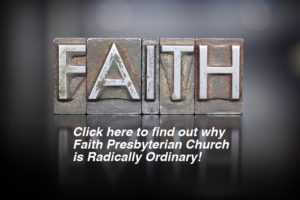10 Steps to Holiness[1] Eight: God’s Two Words (Part 2)
Romans 3:23-31
23 …all have sinned and fall short of the glory of God, 24 and are justified by his grace as a gift, through the redemption that is in Christ Jesus, 25 whom God put forward as a propitiation by his blood, to be received by faith. This was to show God’s righteousness, because in his divine forbearance he had passed over former sins. 26 It was to show his righteousness at the present time, so that he might be just and the justifier of the one who has faith in Jesus.
27 Then what becomes of our boasting? It is excluded. By what kind of law? By a law of works? No, but by the law of faith. 28 For we hold that one is justified by faith apart from works of the law. 29 Or is God the God of Jews only? Is he not the God of Gentiles also? Yes, of Gentiles also, 30 since God is one—who will justify the circumcised by faith and the uncircumcised through faith. 31 Do we then overthrow the law by this faith? By no means! On the contrary, we uphold the law. [2]
The Apostle Paul was constantly hounded by Jerusalem’s first para-church organization – the Judaizers for Jesus. They accused Paul of teaching against the Law and instructing people to ignore it. Yet, Paul writes that God’s law is holy and good and that “we uphold the law.” God has given his law; he has also announced his mercy in Christ Jesus. The question is: “How do law and gospel, God’s two words, fit together?”
To put it another way: if our salvation is by grace alone and our sanctification happens through our union with Christ in the power of the Holy Spirit, what role – if any – is left for God’s law? Last week, we heard that Christ Jesus fulfilled the righteous requirement of the law on our behalf and paid the death penalty for our sin by his crucifixion. And if we are to make any progress in sanctification, we cannot ever depart from the fundamental truth that Jesus paid it all.
Today we’ll examine the law primarily in relation to our increasing reflection of God’s glory – our sanctification, our holiness. Last week we noticed that God’s law always accuses, and it accuses both believers and nonbelievers. But when believers feel the accusation of the law convicting us of our sin, John wrote, “we have an advocate with the Father, Jesus Christ the righteous. He is the propitiation for our sins, and not for ours only but also for the sins of the whole world.”[3]
BOASTING AND LAW
Paul writes in Rom. 3:27 about what happens to our “self-confidence” (boasting) considering his teaching that our rightness with God comes only through trusting into Christ (3:23-26). Then what becomes of our self-confidence [boasting]? It is eliminated. By what kind of law? By a law of works? No, but by the law of trust.
Jesus paid it all! No one gets right or stays right with God by any other means than trust into the person and work of Christ. Boasting is self-announcing. Trust is self-renouncing. Boasting is introspective; trust is extrospective. Boasting looks inward. Trust looks outward and upward to God.[4] Why do we see and hate boasting in others, but almost never see it in ourselves? Self-confidence. Pride.
C.S. Lewis described pride as competition.
Pride gets no pleasure out of having something, only out of having more of it than the next man. We say that people are proud of being rich, or clever, or good-looking, but they are not. They are proud of being richer, or cleverer, or better-looking than others. If everyone else became equally rich, or clever, or good-looking there would be nothing to be proud about. It is the comparison that makes you proud: the pleasure of being above the rest….[5]
Boasting/pride always means strife. It is the cause of strife between people; it is the cause of enmity between man and God. It was Satan’s rebellion against his Creator: “I will ascend…I will make myself like the Most High” (Isa. 14:14); he sold that rebellion to Adam and Eve (Gen. 3:5) and all of us inherited pride (and death) from them. Adam and Eve rejected God’s rightness and lost for every human the ability to EVER earn ANYTHING from God but death.
Judaizers for Jesus and Law
Paul writes in verses 28-31,
28 For we hold that one is justified by faith apart from works of the law. 29 Or is God the God of Jews only? Is he not the God of Gentiles also? Yes, of Gentiles also, 30 since God is one—who will justify the circumcised by faith and the uncircumcised through faith. 31 Do we then overthrow the law by this faith? By no means! On the contrary, we uphold the law. [6]
Jews believed the Mosaic Law was the key to staying in covenant with God. People “got in” to a covenant relationship with God either by Jewish birth or by converting to Judaism. Because the Judaizers for Jesus believed salvation was maintained through Mosaic law-keeping, they insisted all Gentile Christian males be circumcised into Judaism so they could first “get in” the law-covenant with God; then they could “stay in” covenant by following all the rules of the Mosaic law.
Paul writes the One True God is the God of all mankind. That presents a dilemma: must Gentiles become practicing Jews to be right with God? No, says Paul, God offers his Good News to all people everywhere regardless of their race, their culture, or their previous false conceptions of God. The Gospel is not exclusive; it is inclusive! God’s law is not exclusive; it’s inclusive.
The great theologian Charles Hodge wrote that God:
…pursues [both Jews and Gentiles] with …the same plan, and offers salvation to both on exactly the same terms. There is, therefore… the foundation laid for a universal religion, which may be preached to every creature under heaven, which need not, as was the case with the Jewish system, be confined to any one sect or nation. This is the only doctrine which suits the character of God…. God is a universal and not a national God, and this is a method of salvation universally applicable.”[7]
Who may come to Messiah Jesus? Everyone! The gospel is for the great sinner; it is for the outwardly-moral person. It is offered to the Pharisee who tithes and remains outwardly moral. It is offered to the dirty-dealing tax collector. That truth is offensive to the relatively-moral person. It destroys human pride and demands everyone recognize their desperate sinful condition. It matters not if your sin is pride, or gossip, or theft, or murder. You might be a minister, a physician, a housewife, or an unskilled laborer. You may be a Bible teacher or a pornographer. You may be young or old. It doesn’t matter because Messiah Jesus promises, “Whoever comes to me I will never drive away” (John 6:37b). Everyone and anyone may come to Jesus.
How may you come to Messiah Jesus? You come by trusting in his perfect law-keeping life alone, and his mercy-seating, sacrificial death to pay the penalty of your sins, great and small. When may you come to Jesus? NOW! You do NOT have to wait to get better, be less sinful, to make some kind of attempt to pay God back for your past sins. The Gospel is for young people. You don’t have to grow older to come. The Gospel is for mature people. As long as you are alive you may trust into Christ – you may come with aches and pains, with a mind and body ravaged by time. So long as the gate of life is open, the gate of mercy is never shut.[8]
Paul argues that God is the God of all nations, that the Mosaic law was never given to earn salvation for Jews, and that only by trusting into the perfect law-keeping life of the crucified and resurrected Messiah Jesus can ANYONE be saved (regardless of their ethnicity). Justification and sanctification are both aspects of the same salvation, BUT they are NEVER to be blended. Law and gospel are two entirely separate things.
Law and Gospel
Through His Law, God shows us His will. Through His Law, God tells us what He requires and what He forbids. Through His Law, God demands perfect obedience in thought, word, and deed. Through His Law, God shows us that we have not done what He requires and have done what He forbids. Through His Law, God says, “You shall love the Lord your God with all your heart, with all your soul, and with all your mind…You shall love your neighbor as yourself” (Matt.22:37, 39). Through His Law, God calls anything short of perfect obedience sin.
Through His Gospel, God tells us what He has done in Jesus Christ to save those who have broken His Law. Through His Gospel, God shows us that Jesus has done everything He required of us by His Law. Through His Gospel, God shows us that Jesus has been punished under the Law in our place. Through His Gospel, God answers the perfect demands of His Law with the perfect, sinless death and resurrection of Jesus. The Gospel says:
What the Law could not do in that it was weak through the flesh, God did by sending His own Son in the likeness of sinful flesh, on account of sin: He condemned sin in the flesh, that the righteous requirement of the law might be fulfilled in us (Rom. 8:3–4).
Through His Gospel, God answers the requirements of His Law with the life, death, and resurrection of Jesus for us. Through His Gospel, God makes no demands whatsoever. There is only the free gift of God’s grace in Jesus Christ. The law says, “Do!” The Gospel says, “It is finished!”
Trust in God’s provision of rightness with him through Christ’s person and work absolutely undercuts human pride in moral achievement; there is no human moral achievement against God’s demand for perfection. “‘There is no one righteous, not even one.… All have turned away, they have together become worthless; There is no one who does good, not even one’” (Rom. 3:10, 12).
Only the perfect work and sacrificial death of Jesus earn God’s approval. If you are in Christ, God is infinitely pleased with you. But if you are boasting in moral progress, you are in a very bleak, hopeless place. Paul teaches the law of trust excludes human pride. Rom. 3:28, “28 For we hold that one is justified by trust apart from works of the law.” Why is that important? It’s important because rightness with God is not merely a Jewish issue; it’s grave problem for all humanity. Neither Jew nor non-Jew can be made right with God or stay right with God by keeping the law. So, if we don’t earn more of God’s law and approval by keeping the law then why bother with the law? Isn’t that undercutting God’s law?
LAW AND BELIEVERS
Jesus and the Law
Paul was not the first person charged with undercutting the law. Stephen was charged with constantly speaking against the law (Acts 6:13). Jesus was also criticized for giving too little a place to the law. Jesus chief emphasis was on the coming of God’s Kingdom and on knowing, trusting, and loving God as the heavenly Father. Even in the Sermon on the Mount, Jesus doesn’t teach directly on the law. He describes the citizens of his Kingdom as poor in spirit, mourning, hungering and thirsting for righteousness, merciful, pure in heart, peacemakers, persecuted and reviled – not as successful law-keepers.
And yet, Jesus says in Matt. 5:17, “17 “Do not think that I have come to abolish the Law or the Prophets; I have not come to abolish them but to fulfill them.”[9] In saying that, he established the permanent significance of God’s law. First, he said God’s law is the measure of greatness in God’s Kingdom (Matt. 5:19). Second, he said that entering God’s kingdom required righteousness that exceeded that of the scribes and Pharisees (5:20). To understand that we need to know why the law of God was originally given to us.
Purpose of Law
God’s commandments expressed his original will for man’s image. It was a transcript of God’s character. To a perfect Adam and Eve, his commands were mostly positive: extend God’s garden-temple throughout the whole of the earth, populate the planet with perfect God-obeying people. The test of their perfect obedience was the only negative: don’t eat this one fruit or you will die. But when Adam rebelled, God’s image became more and more distorted in mankind. So, to a nation full of sin-fractured Israelites, God’s description of his image and will for his people became a list of mostly negatives: don’t murder, don’t steal, don’t covet, don’t worship idols.
And though his law to Israel was tailored to their specific place and time in redemptive history, it still expressed the eternal nature of the unchanging God and his intention for the image of all human beings. What God originally willed in a positive way for Adam and Eve in their perfection, he expressed in a negative way at Mt. Sinai. God was republishing his original blueprint for life in the new context of all human life broken by Adam’s original sin inherited by all his children.
That pattern for glorifying God is enshrined in each of the Ten Commandments. The will of God after Israel’s exodus from Egypt reflects the will of God before Adam’s sin, and it remains in place following our redemption through Christ. God has a blueprint for the new redeemed humanity recreated in Christ and it is the same blueprint he had for Adam in the garden and for Israel liberated from Egyptian slavery. God’s nature (his law) doesn’t change. Only the situation of humanity changes.
The law takes on a new context with the new situation of Messiah’s incarnation, perfect law-keeping life, sacrificial propitiatory death, resurrection, and the giving of the Holy Spirit at Pentecost. In his life and death, Messiah Jesus is the model of obedience to God’s law and the perfect once-for-all sacrifice pre-figured in the ceremonies of the Mosaic law. By his Holy Spirit, those who trust into Christ receive ALL his benefits and become a part of the new creation God is building (2 Cor. 5:17). Unlike with Adam and Eve, the law of God for believers in Christ is NOT a covenant of works to earn life; it expresses for us God’s will for us as redeemed people.
God’s original command to Adam and Eve to populate the earth with perfect, obedient children begins to be fulfilled in the Christ, the Last Adam, as people of every tribe and language and nation are united into Christ by trusting his person and work alone. In the new context of Messiah Jesus and the Holy Spirit, the law is written not on tablets of stone but on the hearts of all members of the new creation.
Scripture’s commands now describe what the Holy Spirit is doing in the lives of God’s people. They also describe what we shall look like as a “finished product” in the New Heaven and New Earth. John says, “when he appears we shall be like him, because we shall see him as he is.”[10] Paul places his commands into that very context – be what you are becoming, live in the reality of your future perfection on that day when you come out of the shadowland and into the reality of Jesus’ face-to-face presence.
This is what Jesus means when he says he has come to fulfill the law. It’s what Paul means when he says trust establishes the law. It’s the reason the New Testament is full of commands and reflections on the law of God. The law is written into the heart at creation, inscribed on tablets of stone at Sinai, and rewritten into the hearts of God’s people by the Holy Spirit. It describes who Jesus is and who his people are becoming. It promises us what we shall one day perfectly be as we strive to look more and more in the here and now like what we shall become.
[1] This series, with otherwise-noted sources, is a condensed version of Devoted to God: Blueprints For Sanctification by Sinclair Ferguson. Edinburgh: Banner of Truth Trust (2016).
[2] The Holy Bible: English Standard Version (Wheaton: Standard Bible Society, 2016), Ro 3:23–31.
[3] The Holy Bible: English Standard Version (Wheaton: Standard Bible Society, 2016), 1 Jn 2:1–2.
[4] Johnson, Romans 11:3.
[5] C. S. Lewis, Mere Christianity (New York: The Macmillan Company, 1958), 94, 95-96.
[6] The Holy Bible: English Standard Version (Wheaton: Standard Bible Society, 2016), Ro 3:28–31.
[7] Charles Hodge, A Commentary on Romans (Edinburgh and Carlisle, Pa.: The Banner of Truth Trust, 1972), p. 101. (Original edition 1935.)
[8] Charles Haddon Spurgeon, “High Doctrine and Broad Doctrine” in Metropolitan Tabernacle Pulpit, vol. 30 (Pasadena, Tex.: Pilgrim Publications, 1971), pp. 57, 58.
[9] The Holy Bible: English Standard Version (Wheaton: Standard Bible Society, 2016), Mt 5:17.
[10] The Holy Bible: English Standard Version (Wheaton: Standard Bible Society, 2016), 1 Jn 3:2.




